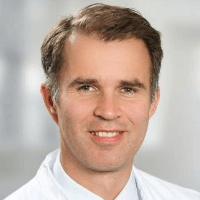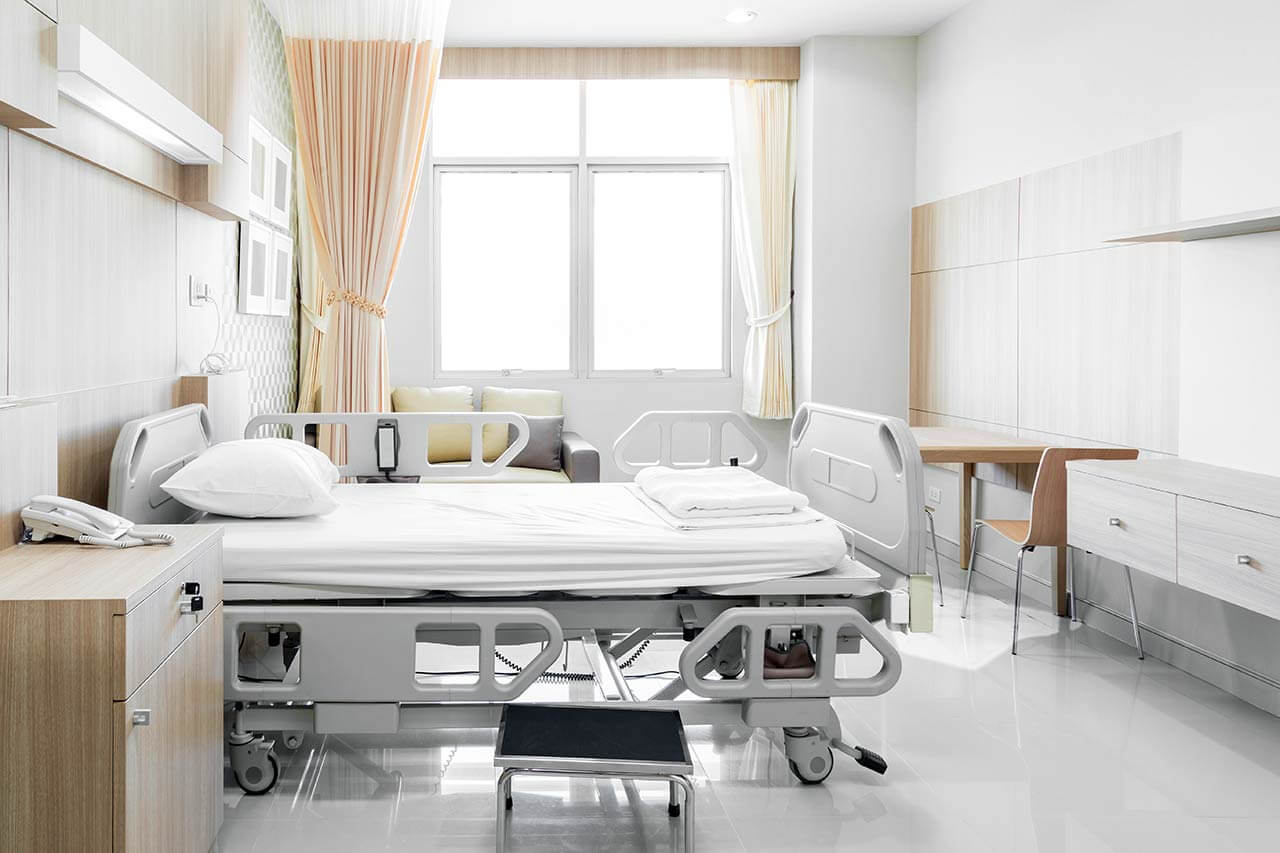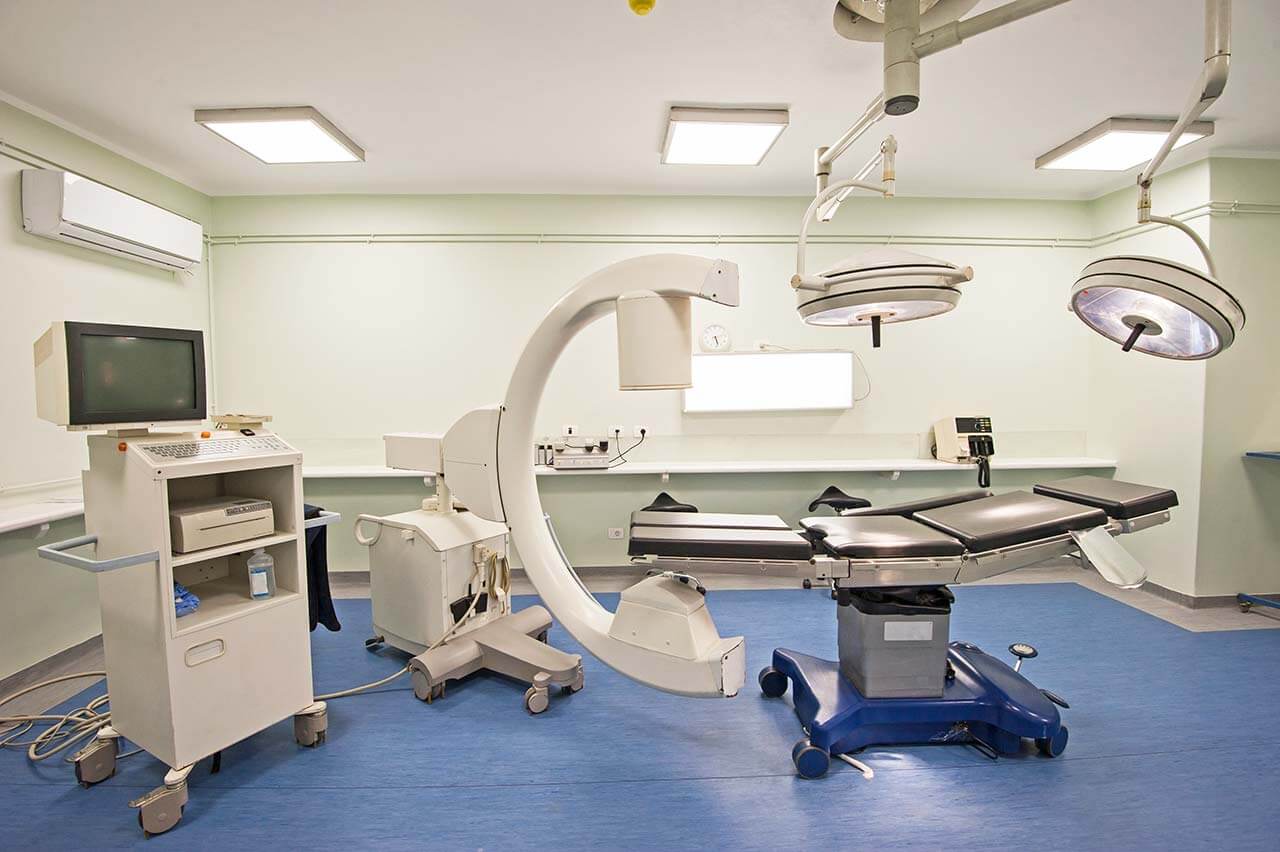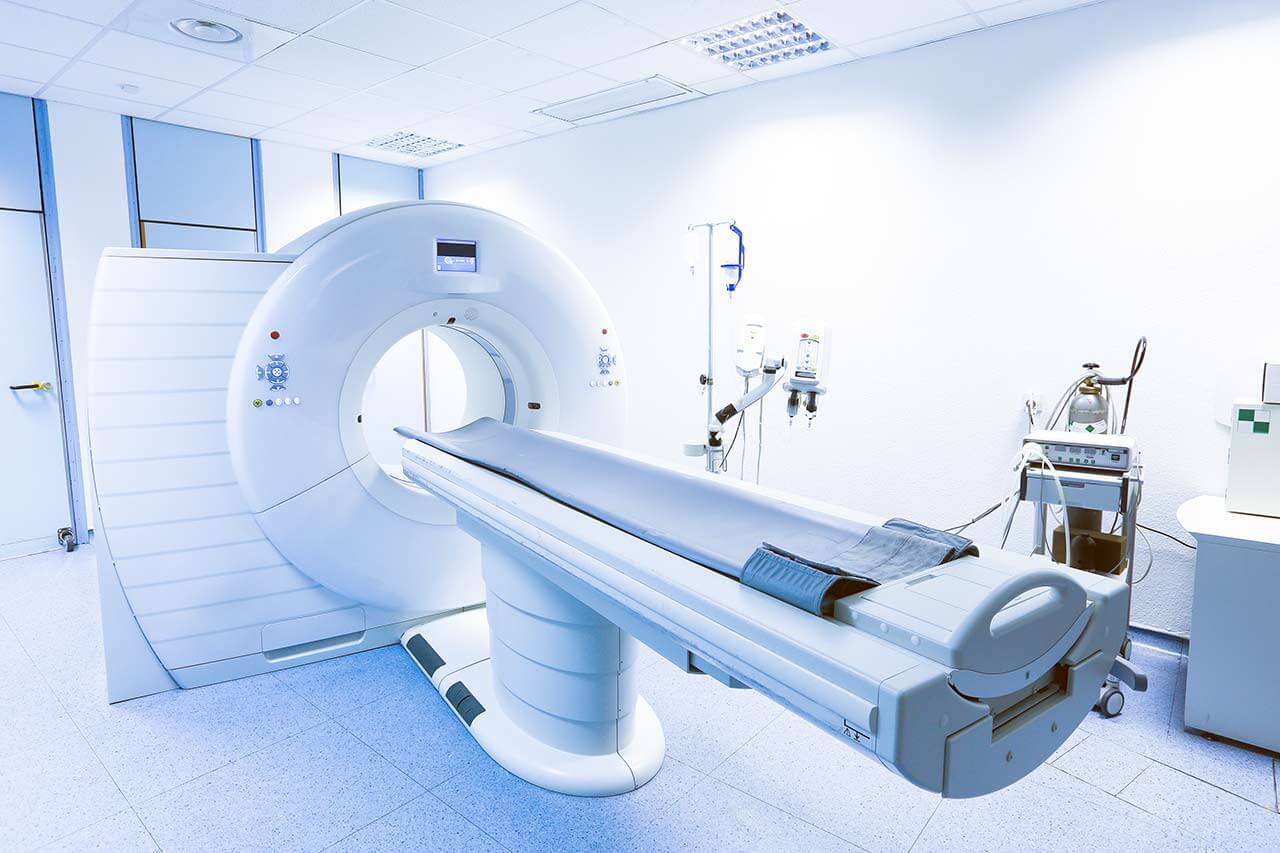
The program includes:
- Initial presentation in the clinic
- clinical history taking
- physical examination
- review of medical records
- laboratory tests:
- complete blood count
- general urine analysis
- biochemical analysis of blood
- indicators of inflammation (CRP, ESR)
- indicators blood coagulation
- x-ray examination of the knee
- MRI scan of the knee
- preoperative care
- arthroscopic or open reconstruction and autotransplantation
by injury of anterior cruciate ligament (ACL) - symptomatic treatment
- control examinations
- physiotherapeutic procedures
- orthopedic appliances
- the cost of essential medicines and materials
- nursing services
- full hospital accommodation
- explanation of future recommendations
Required documents
- Medical records
- X-ray examination, MRI/CT scan (if available)
Service
You may also book:
 BookingHealth Price from:
BookingHealth Price from:
About the department
The Department of Orthopedics at the Helios Hospital Berlin-Buch offers the full range of highly accurate diagnostic examinations and modern treatment methods for patients with musculoskeletal diseases. Of particular interest to the department's doctors are knee and hip joint replacement surgery, treatment of rheumatic lesions of the musculoskeletal system. If possible, surgical interventions are performed using minimally invasive techniques, as well as with the very latest navigation and robot-assisted systems. The Chief Physician of the department is Prof. Dr. med. Daniel Kendoff.
The department's orthopedists have excellent qualifications in the treatment of knee and hip diseases. At the initial stages of pathologies, it is often possible to eliminate pain and restore normal mobility of the patient with the help of physiotherapy and drug treatment. If conservative methods do not help to solve the problem, the department's doctors carry out surgical interventions in order to replace knee or hip joint with an artificial one. In clinical practice, only high-quality endoprostheses made from reliable material with a long service life are used. The department's specialization also includes revision interventions to replace previously implanted endoprostheses. The patient is often prescribed rehabilitation measures after joint replacement (within the specialized Rehabilitation Center). Rehabilitation takes about three weeks and can be carried out both on an outpatient and inpatient basis.
An equally important focus of the department's work is the treatment of orthopedic diseases of the rheumatic spectrum. Inflammatory rheumatic diseases affect joints and tendons, and in the absence of treatment, they can lead to serious dysfunctions of the musculoskeletal system (in especially advanced cases, even to disability). If rheumatic joint lesions do not respond to conservative treatment, surgery may be required. To relieve pain and prevent the destruction of articular structures, the doctors perform resection of the joint mucosa (synovectomy) or tendon mucosa (tenosynovectomy). In the case of tendon rupture, reconstructive interventions are performed. The department's competence also includes arthroscopic procedures, especially on the joints of the fingers, toes and elbow joints.
The key focuses of the department's clinical practice include:
- Partial and total knee replacement surgery
- Partial and total hip replacement surgery
- Revision interventions to replace previously implanted joint prostheses
- Conservative and surgical treatment of rheumatic lesions of the musculoskeletal system
- Interventions on the joint mucosa and tendon sheath
- Reconstruction interventions on the tendons
- Arthroscopic interventions
- Other medical services
Curriculum vitae
Education
- 1997 Semmelweis Medical University, Budapest, Hungary.
- 1997 - 2001 University of Essen.
- 1998 Emergency Medicine, Hennepin County Medical Center, Minneapolis, Minnesota, USA.
- 1999 Elective Orthopedic Surgery, Hospital for Special Surgery, New York, USA.
- 2001 Diploma of the University of Essen.
- 2001 Internship in Orthopedic Surgery, Baylor College of Medicine, Houston, Texas, USA.
- 2001 Internship, Department of Orthopedics, New York University, New York, USA.
- 2008 Habilitation, Hannover Medical School.
Professional Career
- 2002 - 2007 Assistant Physician, Hannover Medical School.
- 2007 - 2008 Research Fellow, Department of Orthopedics, Hospital for Special Surgery, New York, USA.
- 2009 - 2010 Medical Specialist, Helios ENDO-Klinik Hamburg.
- 2010 - 2015 Senior Physician, Helios ENDO-Klinik Hamburg.
- Since 2015 Chief Physician of the Department of Orthopedics at the Helios Hospital Berlin-Buch.
Clinical and Research Focuses
- Total knee replacement surgery.
- Partial knee replacement surgery (sliding prosthesis).
- Total hip replacement surgery.
- Clinical trials on total knee and hip replacement surgery.
- Revision knee and hip interventions.
- Revision interventions in periprosthetic infections.
- Joint replacement surgery using navigation and robotic systems.
Photo of the doctor: (c) Helios Klinikum Berlin-Buch
About hospital
According to the reputable Focus magazine, the Helios Hospital Berlin-Buch ranks among the top medical facilities in Germany!
The hospital is proud of its rich history, which dates back over 100 years, as well as the status of a maximum care medical center with exceptionally high success treatment rates. The medical institution is an academic hospital of the Charite Medical Complex, which is one of the best in Europe and around the world. To provide its services to patients, the hospital has over 1000 beds, over 60 specialized departments, centers and institutes, including emergency service and a helipad, as well as 23 state-of-the-art operating rooms.
The medical institution presents almost all branches of modern medicine, many of which are certified by professional German societies (for example, certification of the German Cancer Society, German Diabetes Society).
The hospital diagnoses and treats about 52,000 inpatients and more than 144,000 outpatients every year. The medical services and patient care are provided by world-renowned highly competent doctors and qualified nursing staff. To achieve the best treatment results, the doctors of related medical disciplines work closely together and jointly develop optimal treatment regimens.
It is worth noting that the hospital is located in a beautiful green park area. In the immediate vicinity of the hospital one can find Buch Castle, Buch Forest and Barnim Nature Park. All this has a beneficial effect on patients, as they have the opportunity to stroll through beautiful places that inspire and help to gain strength for the successful overcoming of the therapeutic process.
Photo: (c) depositphotos
Accommodation in hospital
Patients rooms
The patients of the Helios Hospital Berlin-Buch live in comfortable rooms made in bright colors. Each patient room is equipped with an ensuite bathroom with shower and toilet. The standard room includes an automatically adjustable bed with a system for calling nursing staff (this system also serves to use TV, radio, lamps), a bedside table, a locker for storing personal belongings, a TV, a radio. The hospital offers WI-FI.
Meals and Menus
The patients of the hospital are offered tasty and balanced three meals a day. Breakfast is served as a buffet with a wide selection of pastries, cereal, sausages and cheese. For lunch, the patients usually have a choice of three menus, including a vegetarian menu. Also, the patient can independently combine a lunch menu from various meat, fish and vegetarian dishes and side dishes. Dinner includes a standard menu and dishes that the patient can choose on his own to his taste.
In addition, the hospital houses a cozy cafe with an excellent assortment of pastries, fresh salads, sandwiches, as well as traditional Berlin dishes. Here you can enjoy a cup of aromatic coffee, hot tea or refreshment drinks.
Further details
Standard rooms include:





